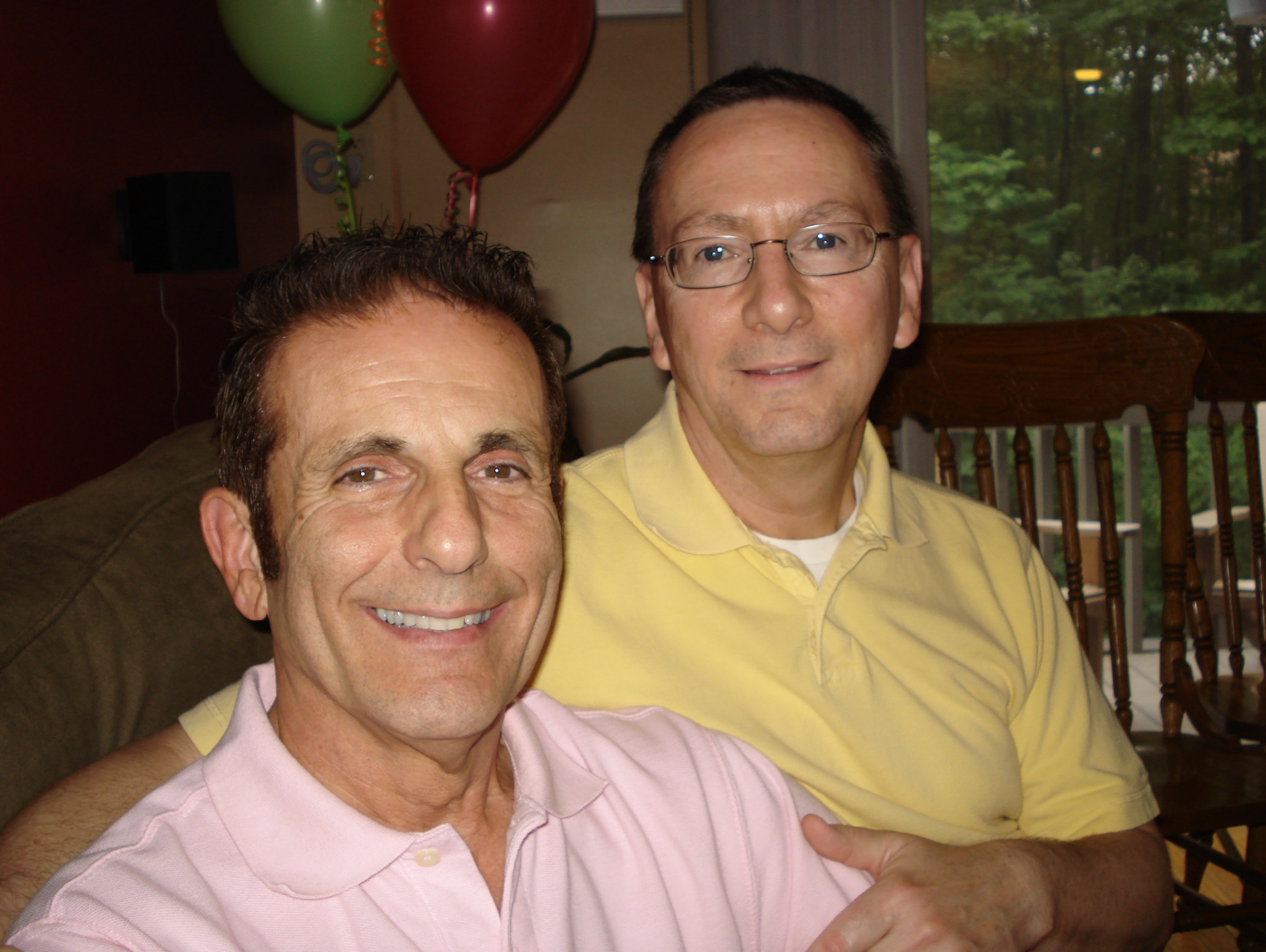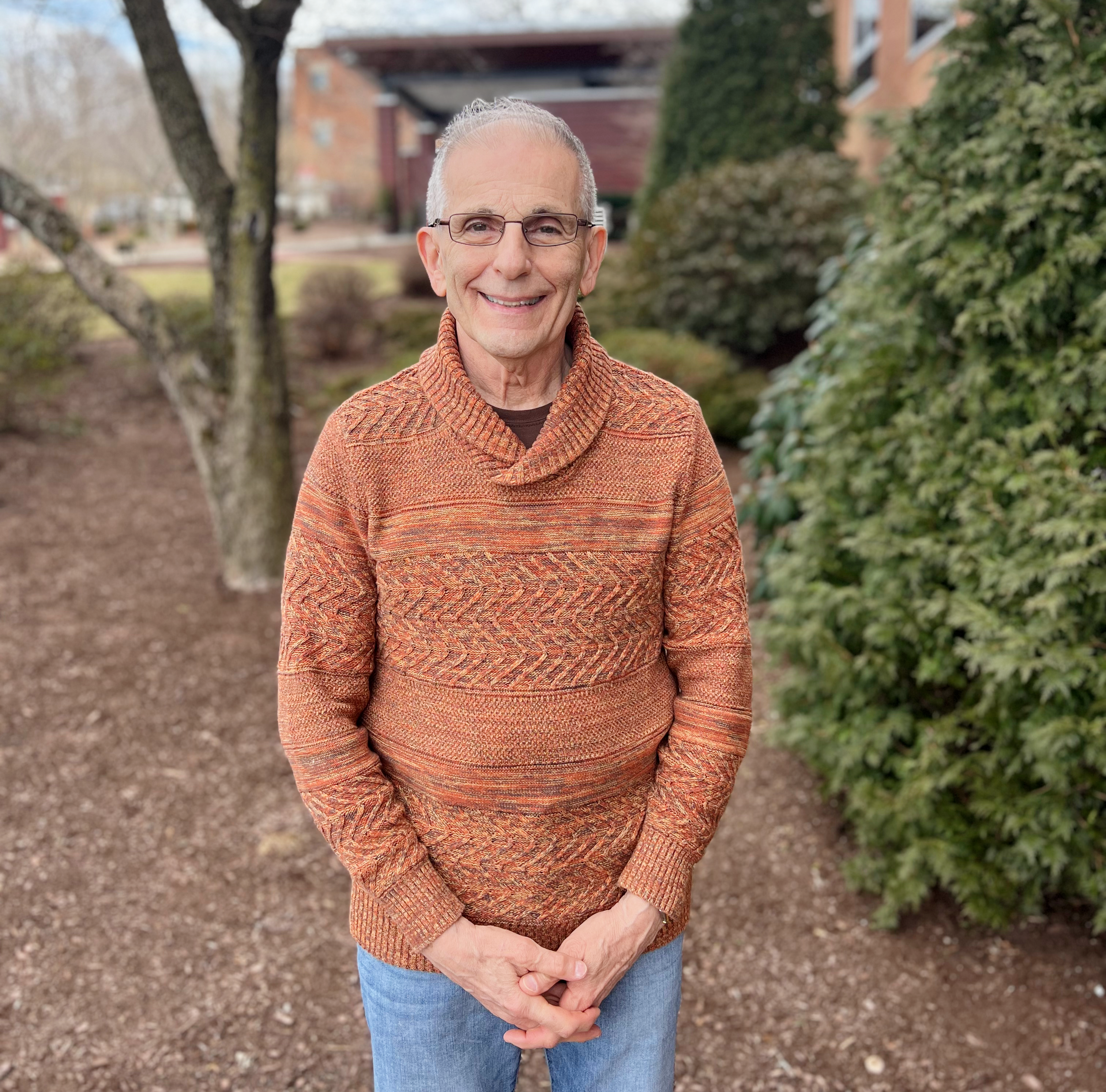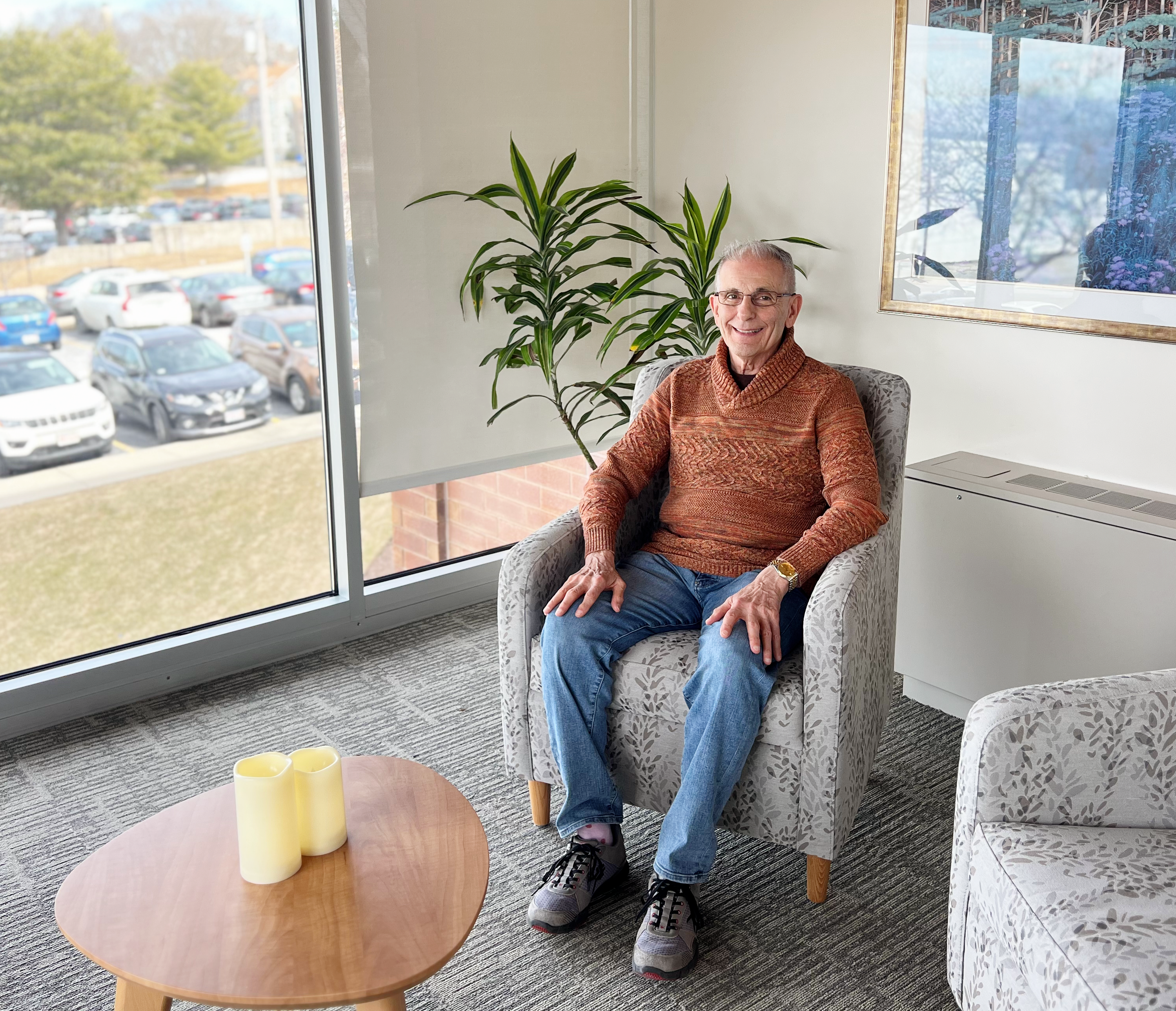In 2010, Bob Iovino-Zuniga’s beloved partner, Ken, received the diagnosis: melanoma brain tumor. For a year, they tried surgery and treatments, but the cancer spread. They faced it together.
“Ken and I got to know each other better during that year than in the previous 10 years,” says Bob. “In many ways it was the most difficult, awful year of my life. But in other ways, it was also the best year. It gave me the opportunity to connect on the deepest level possible with another human being: mind, body and soul.”
For the final three months of Ken’s life, they had the support of hospice, through the organization that is now HopeHealth.
“We had nurses, CNAs, a Reiki master, a social worker, a physical therapist — you name it,” says Bob. “HopeHealth was always there for us.”
Through those months, he had a recurring thought: “What would I ever, ever have done without this support?”
Often, another thought would follow: “I hope I can pay this forward someday.”
> Become a HopeHealth volunteer

“I was in tears that one visit would make such a difference”
Two years after Ken’s death, “I still wanted to pay it forward,” Bob says. “I felt I could.”
He trained to become a HopeHealth volunteer, offering companionship and respite visits to hospice patients.
In the decade since, he can’t count the number of patients he’s visited in homes and care communities. He’s comforted caregivers on their lowest days. He’s sat in silence by bedsides, and his warm presence has coaxed typically reserved patients into friendly conversation.
At one visit, a patient’s wife cautioned that her husband was very tired. But then, he and Bob got to talking anyway. They discovered they’d both graduated from Providence College on the same day, got married in the same year, had sons who played on the same little league teams, and more.
When his wife got home hours later, she asked, “Was he sleeping the whole time?” Bob said, “We haven’t stopped talking!” At the end of their visit, the patient insisted on standing to shake hands goodbye.
A few weeks later, the patient passed away. Bob went to the wake to offer his condolences. As he made his way down the receiving line, everyone knew who he was.
“I’d only met his wife. But here were his brothers and sisters, her brothers and sisters, their children, and they already knew who I was,” Bob says. “He was so touched by my visit that he’d called and told everyone in the family about it. I left there sobbing. I was in tears that one visit would make such a difference.”
> Related: Checklist: What to look for in a hospice provider

“They realize they’re not alone”
Two years ago, Bob got a call from HopeHealth’s director of Clinical & Community Outreach Services, asking him to make a difference in another way. Would he co-facilitate HopeHealth’s LGBTQ+ Grief Support Group? “I know this is something that would be good for them and for you,” she told him.
Bob has plenty of experience leading a group: For 29 years, he taught Italian and Russian to high schoolers in Cranston, RI. He still hears from students who thank him for shaping their lives. But that wasn’t what made him say yes.
“For a whole year after Ken died, HopeHealth sent a grief counselor once a week to my home to work with me. I’ll never forget that,” he shares gratefully.
Now, he and co-facilitator Alex Zima convene the virtual LGBTQ+ Grief Support Group every other week. Members have lost partners, spouses, siblings, parents and other family members. Many had tried general support groups before, but hadn’t felt comfortable or fully understood when they began opening up about themselves. Others are facing additional barriers and stressors that can be unique to the LGBTQ+ experience, like previous trauma from social prejudice, or grieving for a partner when one or both families didn’t acknowledge the relationship. Community is more important than ever.
“When LGBTQ+ people see our group listed online, they know they won’t be judged or questioned or made to feel something’s wrong with them,” says Bob. “They know they’re going to be interacting with people who have also been marginalized, who have shared similar problems. They realize they’re not alone.”
Perhaps most of all, this realization — “you are not alone” — is what he wants to pay forward. He felt it when he was by Ken’s side, leaning on the hospice team for help. He felt it when Ken was suddenly gone, and grief support came into his life. He still feels it now, when he looks around at the faces of the LGBTQ+ grief support group participants.
“It’s an honor that they invite me into their lives,” he says. “I can identify with what they’re feeling. I get it. I’ve felt it. And I can at least give them hope that they will get through it.”

